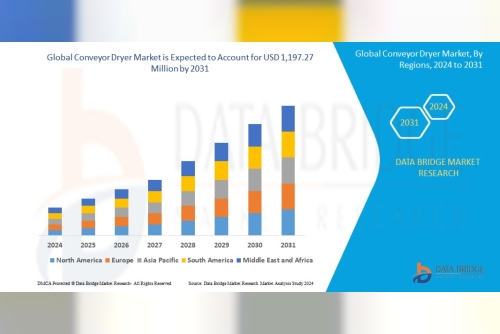In today's world, data is more important than ever. It can be used to solve a wide variety of problems, including background screening. By using data, background screeners can improve the accuracy, efficiency, and fairness of their checks.
There are a number of ways to use data to solve background screening problems. One way is to use data to identify patterns and trends. This information can be used to develop more effective screening criteria.
For example, if a background screener sees that a certain type of criminal record is more common among certain job candidates, they can adjust their screening criteria to focus on that type of record.
Therefore, the question can be asked, “How to Solve the Problem of Inaccurate Background Checks”
Inaccurate background checks can have a negative impact on job candidates and employers.
There are a number of things that can be done to reduce the risk of inaccurate background checks.
Background screeners should use reputable companies and follow best practices. Job candidates should be aware of their rights and dispute any errors they find.
The global background screening services market is expected to reach a value of $12.515 billion by 2030, growing at a CAGR of 9.4% during the forecast period.
How to Solve the Problem of Inaccurate Background Checks?
Here are some steps on how to solve the problem of inaccurate background checks:
1. Use a reputable background screening company: Not all background screening companies are created equal. Some companies are more reliable than others. Do your research and choose a company that has a good reputation and a track record of accuracy.
2. Make sure the company is following best practices: There are a number of best practices that background screening companies should follow in order to ensure accuracy. These best practices include:
Using multiple sources of information
Verifying information with the source
Updating information regularly
Following the Fair Credit Reporting Act (FCRA)
3. Dispute any errors you find: If you find any errors on your background check, you have the right to dispute them. Contact the background screening company and provide them with evidence to support your dispute. The company is required to investigate your dispute and correct any errors they find.
4. Be aware of your rights: As a job candidate, you have certain rights under the FCRA. These rights include:
The right to know what information is being reported on your background check
The right to dispute any errors you find
The right to have the errors corrected
The right to be notified if your background check is used to make a hiring decision
By following these steps, you can help to reduce the risk of inaccurate background checks.
5 Problems and It’s Solutions of Background screener Services
Problem 1: Accuracy
Background checks can be inaccurate, which can lead to unfair hiring decisions. To solve this problem, it is important to use a reputable background screening company that has a track record of accuracy. The company should use multiple sources of information and verify all information with the source.
Solution 1: Use a reputable background screening company
Problem 2: Timeliness
Background checks can take time, which can delay the hiring process. To solve this problem, it is important to start the background check process as early as possible. The company should also factor in the time it will take to get the background check results when making hiring decisions.
Solution 2: Start the background check process early
Problem 3: Cost
Background checks can be expensive, which can be a barrier for small businesses. To solve this problem, there are a number of ways to reduce the cost of background checks, such as:
Buying in bulk
Negotiating with a background screening company
Using a free background check service
Solution 3: Reduce the cost of background checks
Problem 4: Privacy
Background checks can contain sensitive information, such as criminal records and financial information. To solve this problem, it is important to protect the privacy of candidates by only requesting the information that is necessary for the job.
Solution 4: Only request the information that is necessary
Problem 5: Discrimination
Background checks should not be used to discriminate against candidates based on their race, gender, religion, or other protected characteristics. To solve this problem, it is important to follow the Fair Credit Reporting Act (FCRA) and other applicable laws when conducting background checks.
Solution 5: Follow the FCRA and other applicable laws
By addressing these problems, background screener services can help to ensure that the hiring process is fair and accurate.
5 Advantages of Background screener Services
Reduced risk of hiring the wrong person: Background checks can help to identify potential red flags, such as criminal history, financial problems, or drug use. This can help employers to avoid hiring someone who is a liability to the company.
Increased peace of mind: Knowing that your employees have been screened can give you peace of mind that they are trustworthy and qualified for the job. This can help to create a more positive and productive work environment.
Compliance with regulations: Many industries are required by law to conduct background checks on their employees. For example, the healthcare industry is required to conduct background checks on all employees who have direct patient contact.
Improved public image: Conducting background checks can show your customers and clients that you are committed to safety and security. This can help to improve your public image and attract new business.
Reduced turnover: Employees who are screened are more likely to be happy and productive in their work. This can help to reduce turnover and save the company money.
5 Tips Before Hiring Background screener Service
Do your research: There are many different background screening companies out there, so it's important to do your research and choose a company that has a good reputation and a track record of accuracy.
Get multiple quotes: Background screening services can vary in price, so it's a good idea to get multiple quotes before making a decision.
Consider your needs: Not all background checks are created equal. Some background checks are more comprehensive than others, so it's important to choose a service that meets your specific needs.
Understand the laws: There are a number of laws that govern background checks, so it's important to understand the laws in your jurisdiction before conducting a background check.
Be transparent with candidates: Candidates should be aware that they will be subject to a background check, and they should be given the opportunity to dispute any inaccurate information.
Conclusion
Background screener services are an important part of the hiring process. They can help employers to identify potential red flags, such as criminal history, financial problems, or drug use. This can help employers to avoid hiring someone who is a liability to the company.
There are a number of factors to consider when choosing a background screener service. These factors include the cost of the service, the scope of the background check, the turnaround time, and the reputation of the company.
It is important to remember that background checks are not a perfect solution. They can contain errors, and they may not always be able to identify all potential red flags. However, they can be a valuable tool for employers who are looking to hire the best possible employees.
FAQs
1. Why would I need a background screener service?
There are a number of reasons why you might need a background screener service. For example, you might need to conduct a background check on a potential employee, a tenant, or a contractor.
2. How much do background checks cost?
The cost of a background check can vary depending on the type of check, the scope of the check, and the company that conducts the check. Generally speaking, background checks can range in price from a few dollars to several hundred dollars.
3. How long does it take to get a background check?
The turnaround time for a background check can vary depending on the type of check, the scope of the check, and the company that conducts the check. Generally speaking, background checks can take anywhere from a few days to a few weeks to complete.
4. How do I protect the privacy of my candidates?
It is important to protect the privacy of your candidates when conducting a background check. This means that you should only request the information that is necessary for the job and that you should destroy any background check information that is no longer needed.
https://www.hedge.com.bd/blog/background-checks/how-to-use-data-to-solve-background-screening-problems











